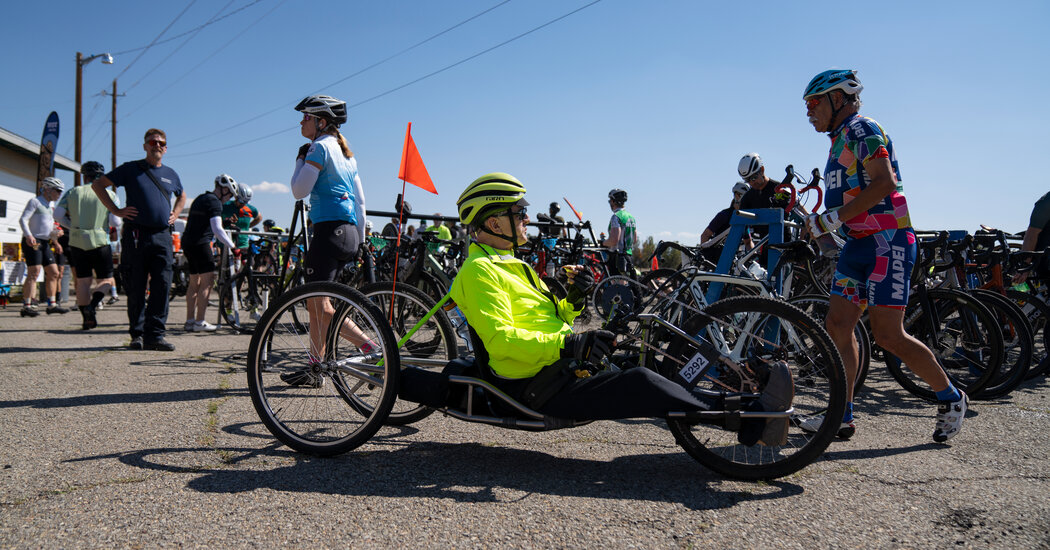
The nervous energy was palpable as hundreds of bike riders, shrink-wrapped in colorful Lycra outfits, waited for the start of the 50-mile Half-Century ride from the Santa Fe Railyard, a center for art galleries, restaurants and a weekly farmers’ market in Santa Fe, N.M. Then, at last, we were winding through town as eight police officers on motorcycles leapfrogged ahead to guard the intersections.
We rode past the Roundhouse, where the New Mexico Legislature meets. We passed Museum Hill, where four museums explore the Native American Southwest, the Spanish colonial past and more. Then, finally, after a dozen or so miles, Santa Fe was far behind us and we were on our own, riding through rolling ranch land.
It was the second day of a two-day biking event that each spring attracts more than 1,500 participants, who come for the companionship and the challenge to ride together through a high-desert landscape rich in history, art and Indigenous traditions. Of all those who had showed up for the Half-Century trek, I was the only one on a handcycle.
Handcycles allow riders to sit or lie on their backs, turn cranks with their hands and propel themselves with arm power instead of leg power. My handcycle, a lightweight Swedish model, was equipped with an electric assist motor — essential for people like me who can’t move their legs.
My arms were going to feel it
Twelve years ago, while leading a climb in Joshua Tree National Park in Southern California, I made a costly mistake and plunged 40 feet onto the unforgiving rock. The fall burst my spine and severed my spinal cord, leaving me a paraplegic.






